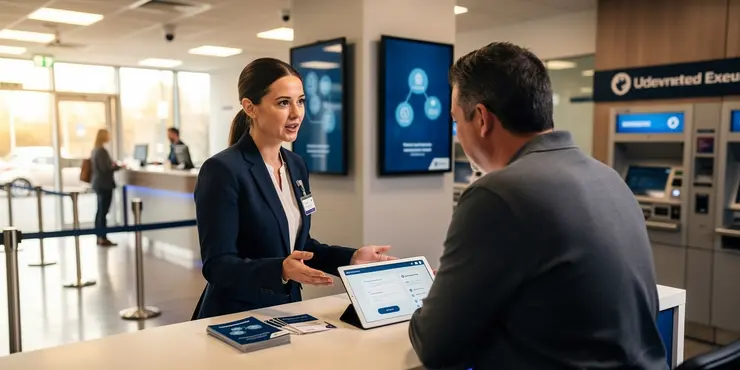
Find Help
More Items From Ergsy search
-
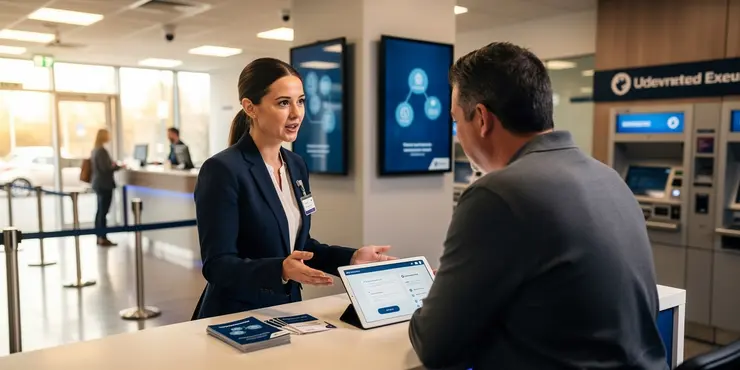
UK Banks Strengthen Security Measures Amid Rise in Online Scams
Relevance: 100%
-
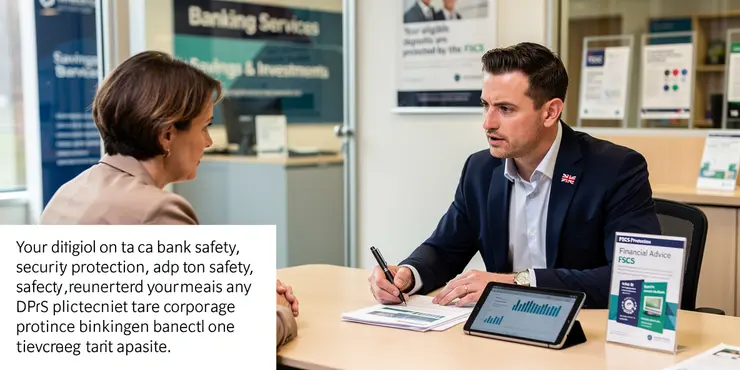
How do I know if a bank is insured and secure?
Relevance: 55%
-

Common Scams to Avoid in 2025 (And How to Outsmart Them!) | Stay Safe Online
Relevance: 52%
-

How to Spot Subscription Scams: 8 Easy Steps to Stay Safe Online!
Relevance: 51%
-
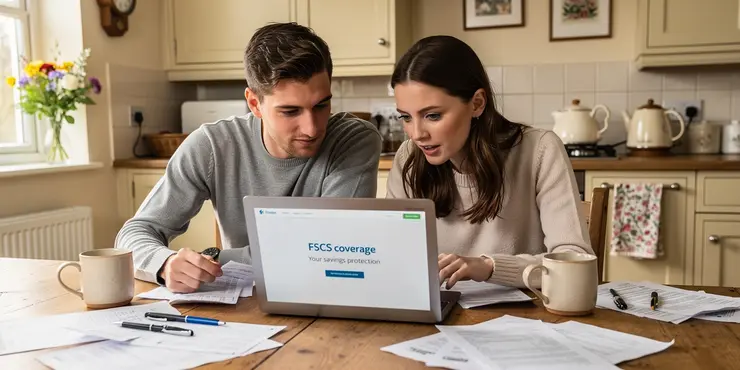
How do I know if a bank is insured and secure?
Relevance: 49%
-

Are online banks like Monzo and Revolut safe?
Relevance: 48%
-
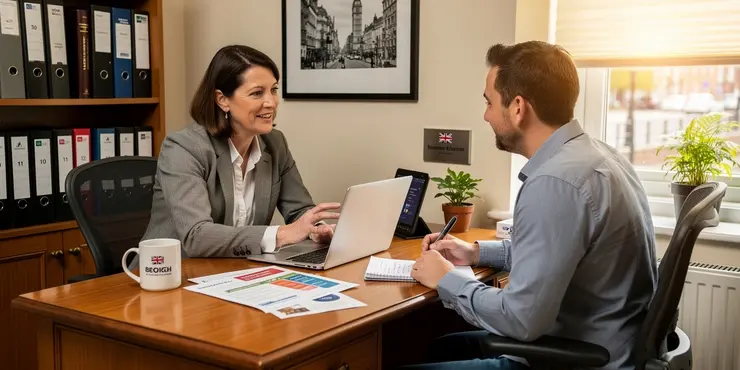
Are online banks cheaper than traditional banks?
Relevance: 47%
-

How do I secure my online accounts?
Relevance: 47%
-
Are online banks cheaper than traditional banks?
Relevance: 44%
-

Are online banks like Monzo and Revolut regulated?
Relevance: 43%
-

How can the elderly protect themselves from scams?
Relevance: 43%
-

Don't Fall for These 7 Cybersecurity Scams!
Relevance: 43%
-
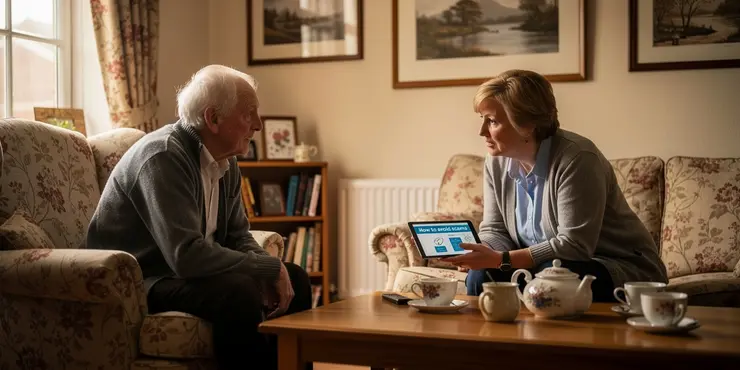
What steps can I take to help an elderly loved one avoid scams?
Relevance: 42%
-

Do online banks offer investment options?
Relevance: 42%
-
Information on scams and fraud that targets the elderly.
Relevance: 42%
-

Common Scams to Avoid in 2025 (And How to Outsmart Them!) | Stay Safe Online
Relevance: 42%
-
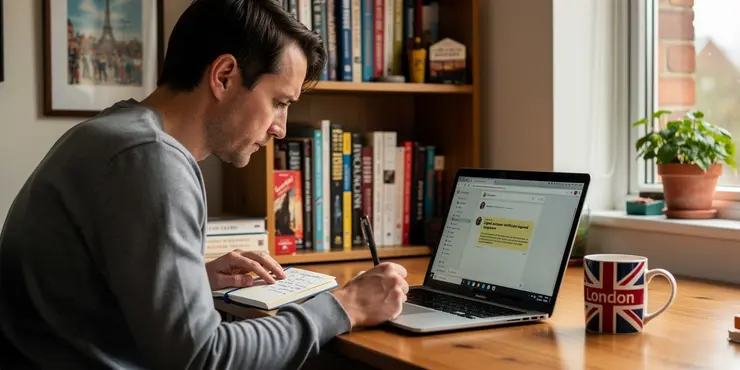
What should I do if I suspect a scam?
Relevance: 41%
-
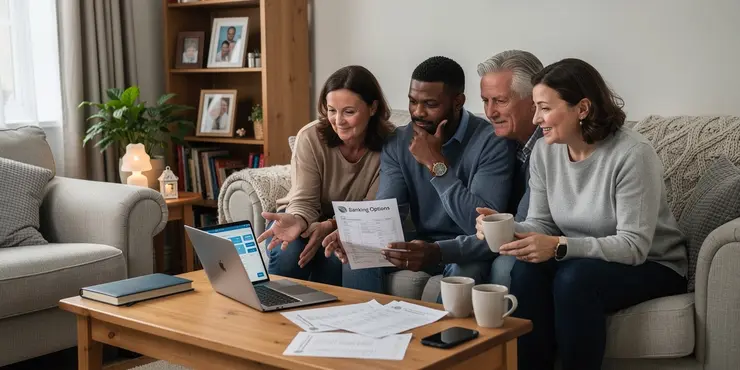
Do online banks have lower fees than traditional banks?
Relevance: 41%
-
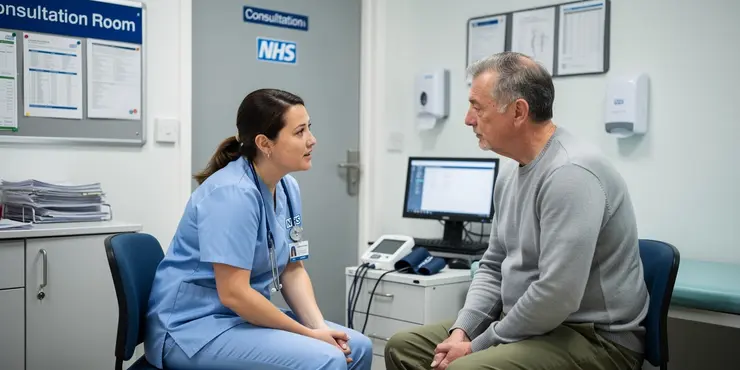
Don't Click On That Email (SPAM & SCAMS)
Relevance: 41%
-
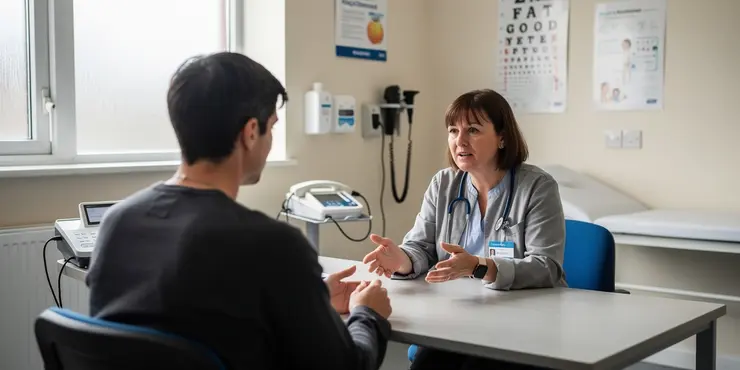
What are tech support scams?
Relevance: 41%
-

Phishing Scams EXPOSED Don't Fall Victim to These Tricks!
Relevance: 41%
-
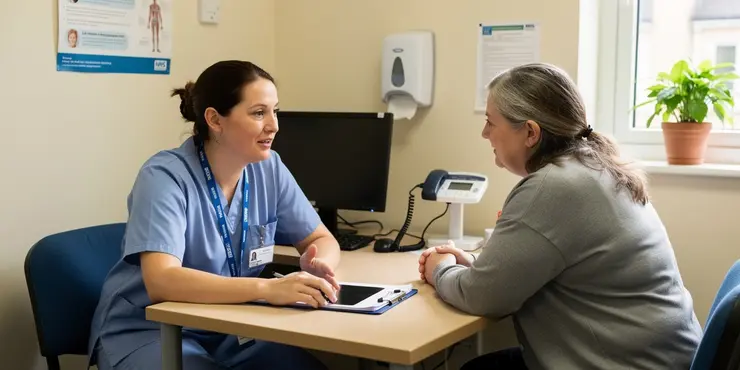
Scams of 2024/2025 ? (Be Aware)
Relevance: 40%
-

Is the Postcode Lottery a scam?
Relevance: 39%
-
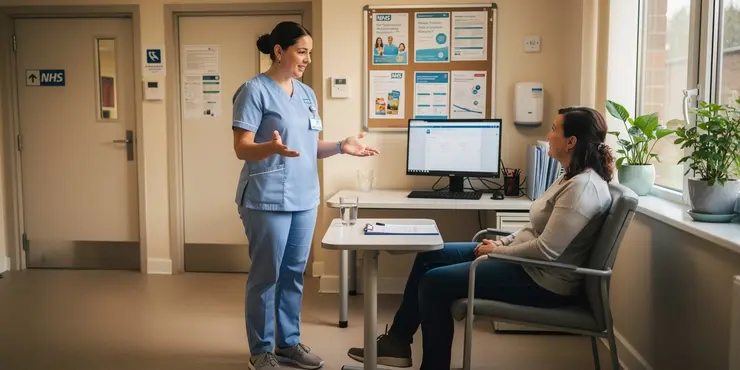
How can I recognize a scam?
Relevance: 39%
-

What are phishing scams?
Relevance: 39%
-

How do charity scams exploit the elderly?
Relevance: 38%
-
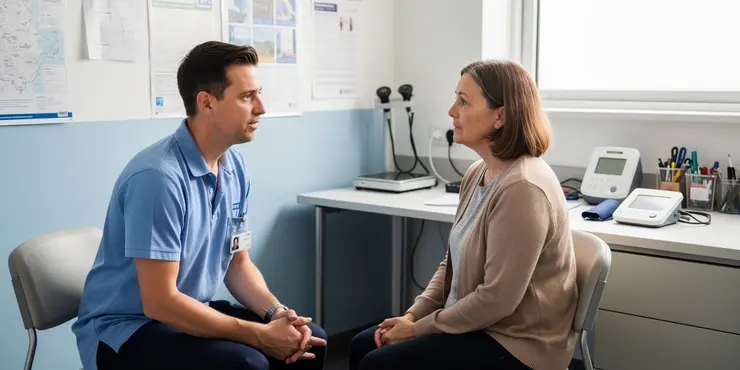
Crypto Scams Exposed - Protect Your Investments Now!
Relevance: 38%
-

What is a grandparent scam?
Relevance: 38%
-
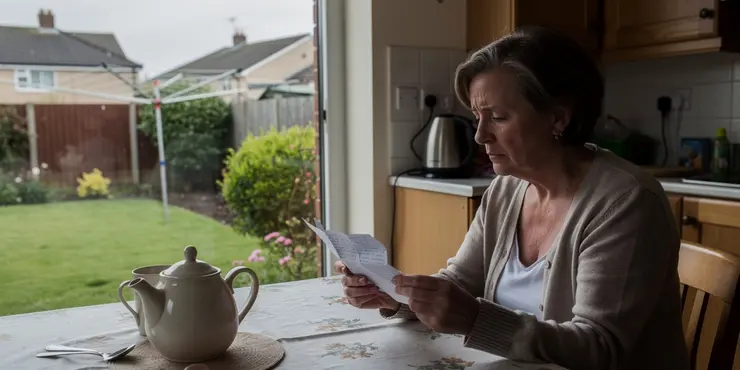
How does a lottery or sweepstakes scam work?
Relevance: 36%
-
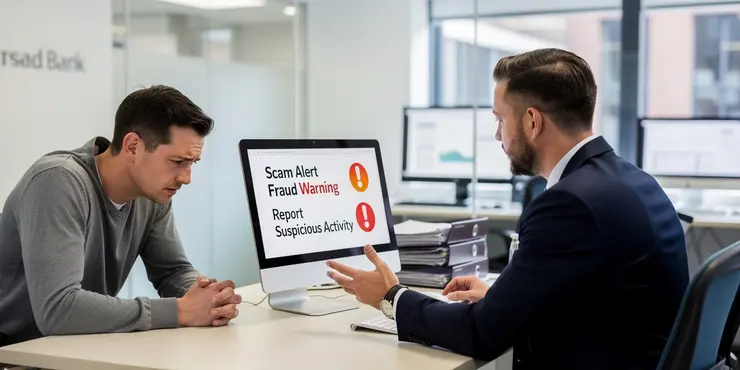
What is the IRS scam?
Relevance: 36%
-
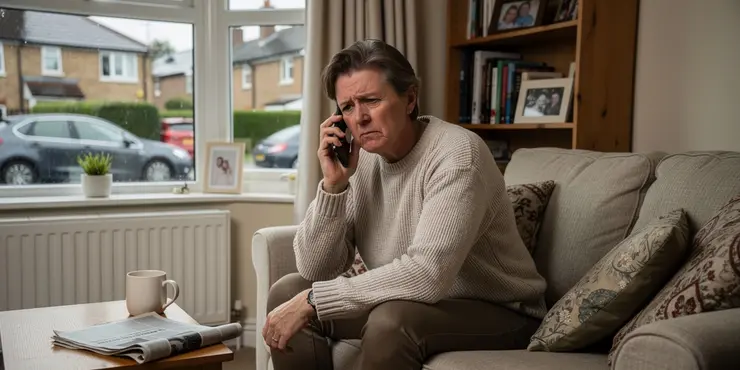
How can I deal with phone phishing scams?
Relevance: 36%
-
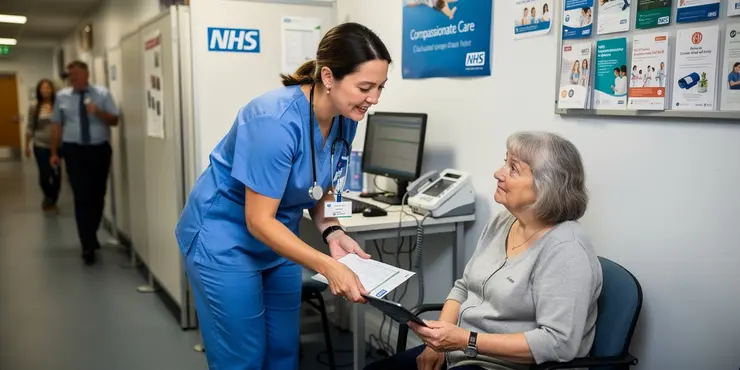
How important is it to report a scam?
Relevance: 35%
-
What online safety measures can parents implement?
Relevance: 35%
-

What are investment scams?
Relevance: 34%
-

Why is it important to secure my mobile phone?
Relevance: 34%
-
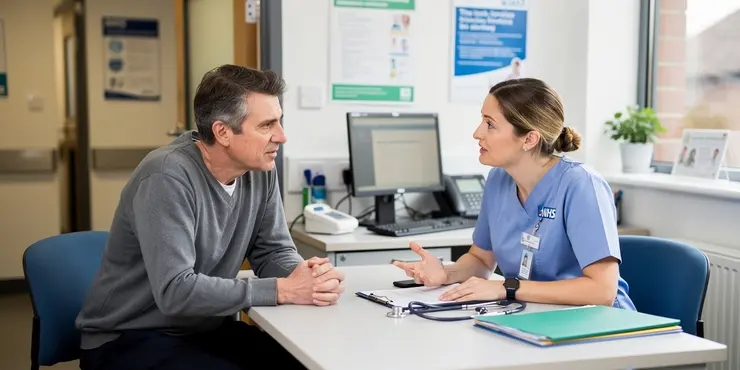
What is a phishing scam?
Relevance: 33%
-
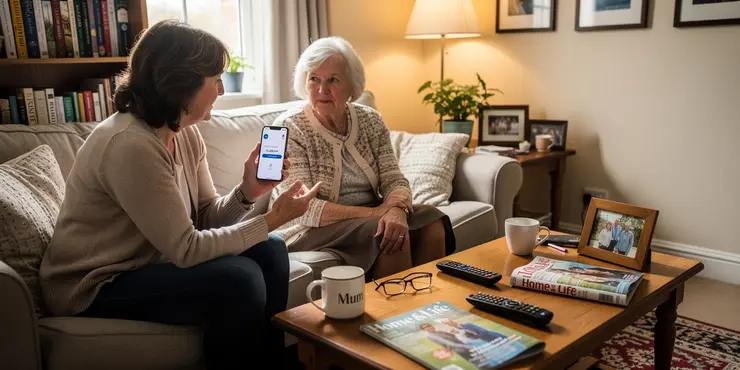
Digital Banking: A Surge in Adoption Amongst All Age Groups
Relevance: 33%
-

Is it safe to file taxes online?
Relevance: 33%
-

The Most Dangerous Crypto Scam: Victims Speak Out
Relevance: 32%
-
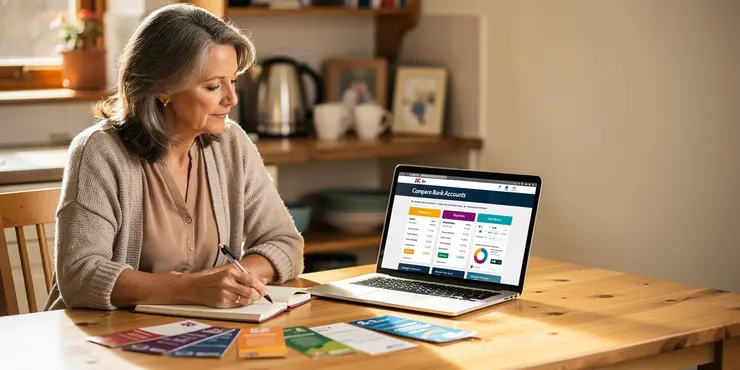
How can I compare banks to find the best deal?
Relevance: 30%
Introduction
In response to the alarming rise in online scams targeting consumers, UK banks have bolstered their security measures. As the digital landscape evolves, so do the tactics of cybercriminals. The UK's financial institutions are making concerted efforts to safeguard consumers’ assets and personal information, implementing advanced technological solutions to combat this growing threat.
The Rise of Online Scams
Over recent years, online scams have become increasingly sophisticated, with fraudsters exploiting the rapid shift towards digital banking and e-commerce. The pandemic accelerated the use of online services, providing criminals with more opportunities to execute scams. According to recent reports, fraudulent activities have led to significant financial losses for consumers and have eroded trust in digital banking solutions.
Enhanced Verification Processes
To mitigate risks and build customer confidence, banks have introduced enhanced verification processes. Multi-factor authentication (MFA) is now a standard requirement for online banking transactions. MFA adds an extra layer of security by combining something the user knows, like a password, with something they have, such as a mobile device, to verify their identity. This move has significantly reduced the likelihood of unauthorized access to accounts.
Advanced Fraud Detection Systems
Banks are investing in sophisticated fraud detection systems powered by artificial intelligence and machine learning technologies. These systems continuously monitor transactions and customer behavior, detecting anomalies that may indicate fraudulent activity. By analyzing patterns and trends, banks can identify and block suspicious transactions in real-time, often before any funds are lost.
Increased Customer Education
In addition to technological solutions, banks have intensified efforts to educate customers about potential threats. Many banks now provide regular updates and alerts on the latest scams and offer guidance on how to recognize and avoid them. Initiatives such as informational webinars, online resources, and direct communications help customers stay informed and vigilant against scams.
Collaboration with Law Enforcement
UK banks are also collaborating more closely with law enforcement agencies to tackle online fraud. By sharing intelligence and participating in joint operations, banks and police can more effectively dismantle criminal networks and bring perpetrators to justice. This collaborative approach enhances the overall security landscape, making it more challenging for fraudsters to succeed.
Conclusion
As online scams continue to pose a significant threat, UK banks remain committed to strengthening their security measures. By leveraging cutting-edge technology, implementing robust verification processes, and fostering greater awareness among customers, banks are working diligently to protect consumers from financial crime. Through these efforts, they aim to maintain trust in the digital banking environment and ensure the safety of online transactions.
Introduction
Online scams are increasing, and this is worrying for people in the UK. To keep people safe, UK banks have made their security better. As the internet changes, criminals find new ways to trick people. UK banks are working hard to protect people's money and personal details. They use new technology to fight against these scams.
The Rise of Online Scams
In the past few years, online scams have gotten smarter. Criminals are taking advantage of more people using online banking and shopping. The COVID-19 pandemic made more people use online services. This gave criminals more chances to scam people. Reports show that these scams make people lose a lot of money and trust in online banking.
Enhanced Verification Processes
To keep customers safe, banks have started using better ways to check who you are. One way is called Multi-Factor Authentication (MFA). This means you need to do two things to prove your identity, like using a password and a mobile phone. This extra step makes it much harder for scammers to get into your account.
Advanced Fraud Detection Systems
Banks use smart technology to find scams quickly. This technology watches what people do with their accounts. If it sees something strange, it can stop the scam before money is lost. By understanding common patterns, banks can keep your money safe.
Increased Customer Education
Banks are also teaching people about scams. They send out news about the latest tricks and tell you how to protect yourself. Banks might have webinars, online guides, and regular messages to help you learn and stay alert.
Collaboration with Law Enforcement
UK banks are working with the police to stop online scams. By sharing information, they can catch criminals and stop scams faster. Working together makes it harder for criminals to trick people.
Conclusion
Online scams are a big problem, but UK banks are doing a lot to keep you safe. They use new technology and make sure you know how to protect yourself. By making security strong and teaching you about scams, banks want to keep your trust and make online banking safe for everyone.
Frequently Asked Questions
Why are UK banks strengthening security measures?
UK banks are strengthening security measures due to a significant increase in online scams targeting customers' personal and financial information.
What types of online scams are most common?
Common online scams include phishing emails, fraudulent messages claiming to be from the bank, fake websites, and social engineering attacks.
What new security measures are being implemented by UK banks?
New security measures include enhanced multi-factor authentication, improved fraud detection systems, and increased monitoring of suspicious transactions.
How can I protect myself from online scams?
Protect yourself by never sharing personal information, regularly updating passwords, verifying bank communications, and using secure networks.
What should I do if I receive a suspicious email from my bank?
If you receive a suspicious email, report it to your bank immediately and do not click on any links or provide any personal information.
Are banks liable for money lost due to online scams?
Banks may refund money lost due to scams if you have not been negligent, but terms vary, so it's crucial to contact your bank for specific policies.
What role does technology play in preventing online scams?
Technology helps prevent scams by enabling banks to use advanced algorithms that detect unusual activity and flag potential fraud quickly.
Will stronger security affect my daily banking activities?
Stronger security may introduce additional verification steps, but these are designed to protect your account without significantly disrupting your banking experience.
How effective are multi-factor authentication methods?
Multi-factor authentication significantly increases security by requiring multiple forms of verification, making it harder for scammers to access accounts.
What is being done to educate customers about online scams?
Banks are increasing customer education through alerts, informational resources, and workshops to raise awareness about the risks and prevention of online scams.
Can I opt out of certain security measures?
Some security measures may be mandatory for account protection, but banks may offer customization for certain settings. Contact your bank for details.
How quickly do banks respond to fraud alerts?
Bank response times vary, but enhancements in fraud detection systems aim to ensure rapid response to any alerts or suspicious activities.
Are online banking apps secure?
Online banking apps incorporate several security layers, but customers must use them responsibly, like keeping apps and devices updated for enhanced security.
What is phishing, and how can I recognize it?
Phishing is a scam trying to steal personal data via communication pretending to be from a trustworthy source. Recognize it by checking for suspicious links or requests for information.
Does strong banking security mean my account is fully safe?
Strong security greatly reduces risks, but no system is foolproof. Stay vigilant and continue practicing safe banking habits to ensure safety.
How do banks use AI in combating online fraud?
Banks use AI to analyze transaction patterns, detect anomalies, and identify potential fraudulent activities faster and more accurately.
What legal protections are there against online scams?
The UK has laws and regulations that require banks to protect customers and often provide guidance on liability and compensation in fraud cases.
How can I verify if a banking website is legitimate?
Verify legitimacy by checking for a secure connection (https), looking for misspellings in the URL, and accessing the site from trusted bookmarks.
Do UK banks share information about scams with each other?
Yes, UK banks often collaborate and share information on scams to enhance collective security and develop better strategies against fraud.
How often do banks update their security protocols?
Banks regularly update their security protocols to adapt to new threats, incorporating the latest technology and practices to protect customers.
Why are UK banks making safety better?
Banks in the UK are making their safety stronger. This helps to keep your money safe. It also stops bad people from taking your money.
Banks add new locks and passwords to keep your money safe. These are like secret codes only you know!
If you need help to remember your passwords, you can write them down in a safe place.
UK banks are making their security stronger because there are more online tricks trying to steal people's personal and money details.
What are the most common online scams?
Online scams happen when someone tries to trick you on the internet. These tricks can make you lose money or give away your personal information. Here are some common online scams:
- Phishing: Emails or messages that look real but are fake. They ask for your passwords or credit card numbers.
- Fake websites: Websites that pretend to be real but are not. They try to steal your information.
- Online shopping scams: Fake online stores that take your money but never send what you bought.
- Lottery scams: Messages that say you have won a prize, but ask for money first.
Here are some tips to stay safe online:
- Ask an adult for help if you are not sure.
- Use strong passwords and keep them secret.
- Be careful about sharing personal information online.
Watch out for tricks online. These tricks can be:
- Emails that try to steal your information.
- Messages that pretend to be from your bank.
- Fake websites that look real.
- Tricking you to give away your secrets.
For help, you can:
- Use special apps to check websites.
- Ask someone you trust if you are unsure.
What are the new safety steps UK banks are using?
We have new safety steps to keep your money safe. These include: using more ways to prove your identity, better systems to spot bad actions, and watching for unusual activities more closely.
How can I keep safe from online tricks?
Keep yourself safe:
- Don't tell anyone your private information.
- Change your passwords often.
- Make sure messages from your bank are real.
- Use safe internet connections.
What to Do If You Get a Strange Email from Your Bank
If you get an email from your bank that looks strange or weird, don't worry. It's important to be safe.
Here are some simple steps you can take:
- Don't Click: Do not click on any links or download files in the email.
- Check the Sender: Look at the email address. Does it look like your bank's real address?
- Call Your Bank: Use the phone number on your bank card—not the one in the email—to ask if the email is real.
- Delete the Email: If you're not sure, it's best to delete the email.
If you need help, ask someone you trust, like a family member or a friend, to look at the email with you.
If you get an email that looks strange or like a trick, tell your bank right away. Do not click on anything in the email, and do not share your personal details.
Do banks have to pay back money lost in online scams?
If someone tricks you and steals your money, the bank might give it back. But you have to be careful with your money. It's a good idea to ask your bank what their rules are for helping you get your money back.
How does technology help stop online scams?
Technology can help keep us safe from online scams. Here’s how:
- Use strong passwords: Make passwords hard to guess.
- Enable two-step verification: This adds an extra step to login, making it harder for scammers.
- Install security software: This helps protect your computer from harmful files.
- Use secure websites: Look for a small lock icon in the address bar.
If you're not sure, ask a friend or family member to help. You can also use tools that read text out loud or explain things in easier words.
Technology helps stop tricksters from cheating. Banks use special computer programs to find strange activities and warn about possible bad actions fast.
Will better security change how I use my bank every day?
Stronger security means there might be extra steps to check who you are, but these steps keep your account safe. They won’t make banking much harder for you.
How good are ways to keep accounts safe by using more than one check?
Multi-factor authentication makes your accounts much safer. It asks for more than one kind of proof that it's you. This makes it really hard for bad people to get in.
How are people learning about online scams?
It's important for everyone to know how to stay safe from tricks on the internet. Here are some ways people are learning:
- Simple guides and videos that show what online scams look like.
- Websites with tips on how to spot scams and stay safe.
- Workshops where experts teach about online safety.
- Apps that help protect against scams.
These tools can help you learn what to watch out for and keep safe while using the internet.
Banks are helping people learn more about staying safe from online tricks. They do this by sending warnings, sharing information, and offering classes.
Can I say no to some safety checks?
Banks need to keep your account safe. Some safety rules are necessary. But, banks might let you change some settings. Ask your bank for more information.
How fast do banks react to fraud alerts?
Sometimes, banks take different amounts of time to reply, but they are getting better at finding fraud quickly and keeping you safe.
Are online banking apps safe to use?
Online banking apps let you check your money on your computer or phone. They can be very helpful! But it's important to know if they are safe.
Here's what you can do to make sure your online banking is safe:
- Password: Make a strong password. Use numbers, letters, and special symbols like @ or #.
- Updates: Keep your app updated. Updates help fix problems and keep your app safe.
- Wi-Fi: Use safe Wi-Fi. Be careful with free Wi-Fi; it may not be safe.
- Two-step check: Some banks ask for extra steps to log in. This is called two-step check or verification. It makes your account safer.
If you need help, ask a friend or family member. You can also talk to your bank for tips on keeping your account safe.
Online banking apps have many safety features. But users need to be careful too. Always update your apps and devices to keep them safe.
What is phishing, and how can I spot it?
Phishing is when someone tries to trick you into giving them your personal information, like passwords or bank details. They often pretend to be a trusted person or company in an email, text, or website.
Here’s how you can spot phishing:
- Look for mistakes: Bad spelling and grammar can be a sign.
- Check the address: Phishing messages might come from odd email addresses.
- Be careful with links: Don't click links that look suspicious.
- Don’t share personal details: Nobody trustworthy will ask for your password or private info by email or text.
Tools that can help you:
- Use a spam filter: It can help block phishing emails.
- Install antivirus software: This can protect your computer from harmful websites.
Phishing is a nasty trick. Bad people try to steal your private information using fake messages. They pretend to be someone you trust.
You can spot these tricks by looking for links or messages that seem strange. Also, be careful if they ask for personal information.
Is my account always safe because of strong bank security?
Banks work hard to keep your money safe. They use strong passwords, special codes, and other tools to protect your account. But, no system is perfect all the time.
You can help keep your account safe too:
- Use a smart password. Mix letters, numbers, and symbols.
- Don’t share your password with anyone.
- Turn on extra security, like text message alerts, if your bank offers it.
If you ever feel unsure or see anything strange with your bank account, tell the bank right away. They can help you check everything is okay.
Good security makes things much safer, but nothing is perfect. Keep watching out for problems and use smart banking habits to stay safe.
How do banks stop online stealing using computers?
Banks use smart computers to help stop people from stealing money online. These smart computers are called AI (or Artificial Intelligence).
Here's how they help:
- Spotting bad behavior: AI can watch for strange things happening in your account, like big money moves or spending in new places.
- Alerts: If AI spots something odd, it can tell the bank so they can check it out fast.
- Learning about thieves: AI learns how thieves try to steal money, so it can stop them better each time.
To understand better, you can:
- Use simple videos or pictures to see how AI works.
- Ask someone to explain words you don't know.
Banks use smart computers to look at how people spend money. They check for anything that looks strange or wrong. This helps them find bad activities quickly and correctly.
What can the law do to help you if someone tries to trick you online?
If someone tries to trick you on the internet, the law can help you. Here is how:
- Report It: Tell someone in charge, like a website or the police. They can look into it.
- Stay Safe: Use tools like antivirus programs. They can stop bad stuff from happening.
- Learn More: There are websites that teach you how to spot tricks online.
You can ask for help if you don't understand something. Asking a friend or using pictures and videos can help make things clearer.
The UK has rules and laws to make sure banks keep people safe. These rules often help with what to do if someone cheats or steals money and how people can get their money back.
How do I check if a bank website is real?
Make sure the website is real. Here’s how:
- Look for https at the start of the web address.
- Check the web address for spelling mistakes.
- Use bookmarks you trust to get to the site.
Do banks in the UK talk to each other about scams?
Sometimes, people try to trick you and take your money. This is called a scam. Do you want to know if banks in the UK share information about these tricks with each other? Let's find out in simple words.
If you need more help, you can use tools that read words out loud for you. You can also ask someone you trust to explain things. It is okay to ask questions if you don't understand.
Yes, banks in the UK work together and share information about scams. This helps them stay safe and find better ways to stop fraud.
How often do banks make their security better?
Banks work hard to keep your money safe. They check their security rules regularly to make sure they are strong and up-to-date.
Here are some simple things you can use for help:
- Ask someone you trust to explain things if they seem confusing.
- Use apps or tools that read out loud, if reading is hard.
Banks work hard to keep your money safe. They often make their security better to stop bad people. They use new technology and smart ways to protect you.
If you find reading hard, you can ask someone to help you or use apps that read text out loud. These can make it easier to understand.
Useful Links
This website offers general information and is not a substitute for professional advice.
Always seek guidance from qualified professionals.
If you have any medical concerns or need urgent help, contact a healthcare professional or emergency services immediately.
Some of this content was generated with AI assistance. We’ve done our best to keep it accurate, helpful, and human-friendly.
- Ergsy carfully checks the information in the videos we provide here.
- Videos shown by Youtube after a video has completed, have NOT been reviewed by ERGSY.
- To view, click the arrow in centre of video.
- Most of the videos you find here will have subtitles and/or closed captions available.
- You may need to turn these on, and choose your preferred language.
- Go to the video you'd like to watch.
- If closed captions (CC) are available, settings will be visible on the bottom right of the video player.
- To turn on Captions, click settings .
- To turn off Captions, click settings again.
More Items From Ergsy search
-

UK Banks Strengthen Security Measures Amid Rise in Online Scams
Relevance: 100%
-

How do I know if a bank is insured and secure?
Relevance: 55%
-

Common Scams to Avoid in 2025 (And How to Outsmart Them!) | Stay Safe Online
Relevance: 52%
-

How to Spot Subscription Scams: 8 Easy Steps to Stay Safe Online!
Relevance: 51%
-

How do I know if a bank is insured and secure?
Relevance: 49%
-

Are online banks like Monzo and Revolut safe?
Relevance: 48%
-

Are online banks cheaper than traditional banks?
Relevance: 47%
-

How do I secure my online accounts?
Relevance: 47%
-
Are online banks cheaper than traditional banks?
Relevance: 44%
-

Are online banks like Monzo and Revolut regulated?
Relevance: 43%
-

How can the elderly protect themselves from scams?
Relevance: 43%
-

Don't Fall for These 7 Cybersecurity Scams!
Relevance: 43%
-

What steps can I take to help an elderly loved one avoid scams?
Relevance: 42%
-

Do online banks offer investment options?
Relevance: 42%
-
Information on scams and fraud that targets the elderly.
Relevance: 42%
-

Common Scams to Avoid in 2025 (And How to Outsmart Them!) | Stay Safe Online
Relevance: 42%
-

What should I do if I suspect a scam?
Relevance: 41%
-

Do online banks have lower fees than traditional banks?
Relevance: 41%
-

Don't Click On That Email (SPAM & SCAMS)
Relevance: 41%
-

What are tech support scams?
Relevance: 41%
-

Phishing Scams EXPOSED Don't Fall Victim to These Tricks!
Relevance: 41%
-

Scams of 2024/2025 ? (Be Aware)
Relevance: 40%
-

Is the Postcode Lottery a scam?
Relevance: 39%
-

How can I recognize a scam?
Relevance: 39%
-

What are phishing scams?
Relevance: 39%
-

How do charity scams exploit the elderly?
Relevance: 38%
-

Crypto Scams Exposed - Protect Your Investments Now!
Relevance: 38%
-

What is a grandparent scam?
Relevance: 38%
-

How does a lottery or sweepstakes scam work?
Relevance: 36%
-

What is the IRS scam?
Relevance: 36%
-

How can I deal with phone phishing scams?
Relevance: 36%
-

How important is it to report a scam?
Relevance: 35%
-
What online safety measures can parents implement?
Relevance: 35%
-

What are investment scams?
Relevance: 34%
-

Why is it important to secure my mobile phone?
Relevance: 34%
-

What is a phishing scam?
Relevance: 33%
-

Digital Banking: A Surge in Adoption Amongst All Age Groups
Relevance: 33%
-

Is it safe to file taxes online?
Relevance: 33%
-

The Most Dangerous Crypto Scam: Victims Speak Out
Relevance: 32%
-

How can I compare banks to find the best deal?
Relevance: 30%


